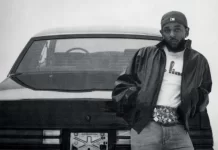Pharrell Williams
G I R L Album Review
I AM OTHER/ Columbia Records
Released March 3, 2014
Genre: Funk, Neo-Soul, Dance Pop
The first word you hear on the opening track, “Marilyn Monroe,” is “different,” and then gentle strings arrive, like something you’d hear off of a Lana Del Rey album before the song breaks into some soulful territory. From this point on, it’s evident that everything about Pharrell’s music has changed. Instead of rap, we’re met with a smooth croon and falsetto, and the topical themes of gang culture are traded in for some romantic topics. While the rambunctious energy of his last album gained him a loyal following, the funky, soulful atmosphere on G I R L gives the world of pop music a breath of fresh air.
Pharrell Williams has kept himself busy since 2006′s In My Mind dominated the charts. Since then, he’s dabbled around as a producer, producing albums and songs for artists such as Frank Ocean, Mariah Carey, and, most notably, Daft Punk, soundtracking children films and even dabbling in the misogynistic “Blurred Lines.” Despite his notoriety amongst pop culture as the changeless 40 year old, Williams has slowly been innovating a genre that has been pushed into the media for quite some time.
Due to In My Mind’s lackluster material, Williams endured years of being rarely ubiquitous, mostly, as said before, producing. His fame however has shot up to the public eye with the success of Robin Thicke’s “Blurred Lines” and Daft Punk’s nostalgic Random Access Memories. It seems that on G I R L, Williams has pointed all his creative innovations, experiments and accomplishments into a direction that has encapsulated the eight years since his last effort.
“Blurred Lines’” blatant imitation of Marvin Gaye’s disco hit “Got To Give It Up” as well as Daft Punk’s disco revival influences appear here on this album, continuing on with the revival of 70s disco fused with dance floor ready bravado that has been popping up everywhere, from Broken Bells to Arcade Fire. While this sound is starkly different from what old school Pharrell fans are used to, Williams has reincarnated its nostalgic sound, but with a few modern modifications.
The breakthrough track “Happy” gained a lot of media buzz, enough to attract the attention of the Academy of Motion Picture Arts and Sciences, who nominated it for Best Original Song. The song smoothly glides with Pharrell’s falsetto slithering through the funky bass grooves and cluttered claps, delivering an impossible-to-not-dance-to vibe that comes complete with a 24 hour music video loaded with enough celebrity cameos to attract the attention of Steve Carrell fans to Golf Wang followers. If the fun energy of “Blurred Lines” went without the sexist lyrics, this is the song that points this energy into a more optimistic direction. You can’t help feeling empowered, hopeful, and, you guessed it, happy.
However, “Happy” stands apart distinctly from the rest of the album in terms of themes. Every other song either deals with women or wanting. Now while the shallow concept of the album comes off as reasonable and goes down easy, clichés and comparisons never leave the mind. The all-out debauchery of “Hunter” shows almost no difference from “Blurred Lines,” complete with middle school comparisons and corny lyrics; neither does the sleazy attitude of “Gush.” The two fail to switch things up in positive direction much like “Happy” did.
Given the album title and tracks with names such as “Lost Queen” and “Come Get It Bae,” the overall focus of the opposite sex comes to a prominent level. However, Pharrell is married and 40, and yet G I R L speaks about women on a broader level, ranging from modest to immorally seedy.
In an interview with Pitchfork, Williams said “My wife is a direct inspiration, for sure, but when I decided to do the album, I instantly knew what the album was going to be a full-spectrum ode to all the women who have been so good to me in my career. Most of my company, i am OTHER, is run by women.”
Now Pharrell does pay homage to women on this album, evident on tracks like, “Brand New,” where Williams croons, thankful for his personal revival: “but then you came along, and you made me strong” he sings, atop Nile Rodgers stylized guitar licks and a rhythm that was snatched from an early Jackson 5 demo. Similarly, on “Come Get It Bae,” Williams infuses 2014 pop culture slangs, a prominent pop singer (Hint: Bangerz), and enough corny metaphors to make up another Timberlake album. Interestingly enough, he layers it over a disco rock rhythm that will force you to dance and move like no other.
Williams further explores the realm of pop music by incorporating ska elements in “Know Who You Are”, where guest star Alicia Keys brings in some soothing backup vocals and an equally as sweet chorus. But Williams’ corny lyricism plagues this potential radio-friendly track. Any line that includes “Inhale, exhale, in and out, like a seal” should be frowned upon for its over the top corniness, but hey, at least it doesn’t stoop to “Suit & Tie” levels. Equally as corny is the track “It Girl,” where Pharrell sings “My compass spinnin’, baby, it’s the right destination.” Really? This is beginning to feel like corny town; subsequently, the album ends on a bad note.
The overall stylistic aim for retro-modern-pop is present on this album, but Williams struggles to connect the blatant lyricism of 21st century pop with the unblemished music of the past. It appears that the music is where Williams has flawlessly and beautifully rendered; and while Williams offers many opportunities to explore the realms of disco, pop, funk and soul in order to bring them all under a common viewpoint, Williams’ latest endeavor fails to reach expectations that it set up for itself, and ultimately makes you wish it was more personal than inventive.
BEST TRACKS: Brand New, Happy, Come Get It Bae, Lost Queen
LEAST FAV TRACKS: Hunter, Gush







